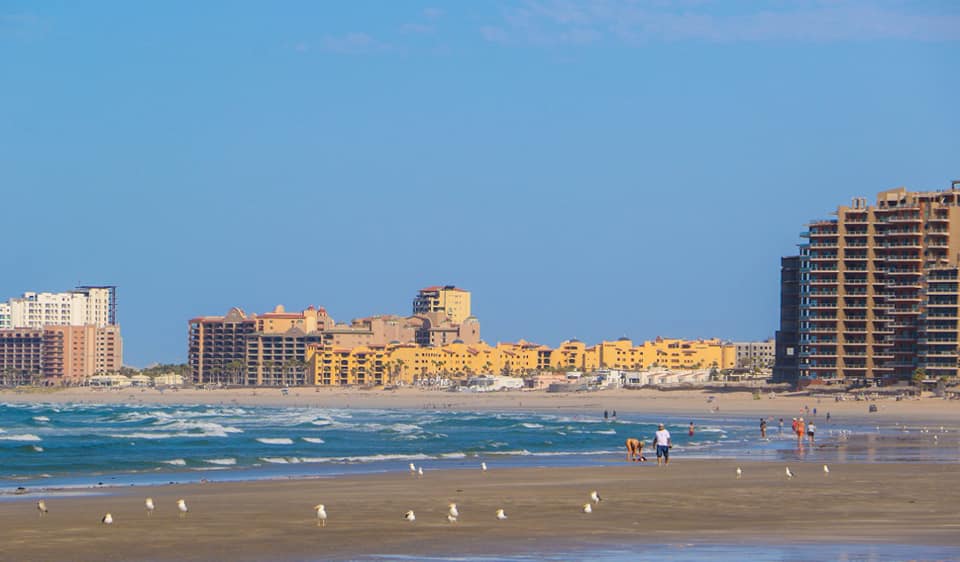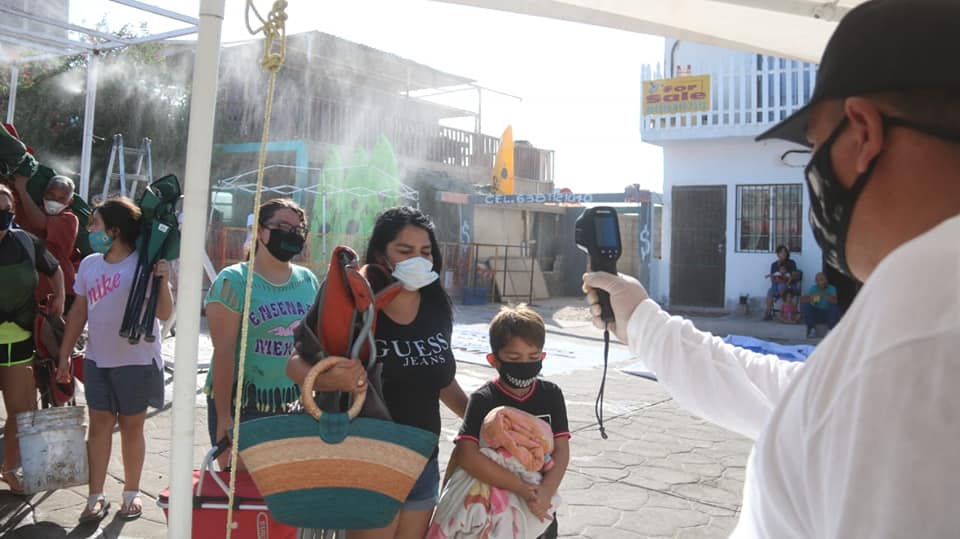 VIEW LARGER Rocky Point reopened its beaches on Aug. 1, 2020. The city expects a huge influx of tourists over Labor Day weekend.
VIEW LARGER Rocky Point reopened its beaches on Aug. 1, 2020. The city expects a huge influx of tourists over Labor Day weekend.
Restrictions on nonessential travel are still in place at the U.S.-Mexico border. But leaders in the Sonoran beach town Puerto Peñasco, known as Rocky Point, are counting on many Arizonans to continue ignoring those restrictions during Labor Day weekend.
Puerto Peñasco Mayor Ernesto Munro said tourism officials estimate 50,000 tourists, mostly from Arizona, have visited since the city reopened its beaches on Aug. 1. And they expect the number of tourists to soar over the holiday weekend.
"We feel that this is going to be the best weekend since we reopened," he said. "And we hope it to be a very good weekend for our business people, for our community, but also for tourists.
 VIEW LARGER Visitors are sprayed with sanitizing solution and have their temperatures checked before being allowed onto Rocky Point's newly reopened beaches on Aug. 1, 2020.
VIEW LARGER Visitors are sprayed with sanitizing solution and have their temperatures checked before being allowed onto Rocky Point's newly reopened beaches on Aug. 1, 2020.
Munro said Rocky Point, which shut down to any visitors in March, is still taking precautions to prevent the spread of the coronavirus. The city is several months into a detailed economic reactivation plan. On Sept. 1, the city entered phase seven of the plan, allowing additional businesses to open and extending the nightly curfew until midnight. After Labor Day weekend, Munro said Rocky Point will also stop random coronavirus testing at the entrance to the city. However, protocols such as mask wearing, social distancing and sanitation measures are still in place, he said.
Tourism is not considered essential travel according to pandemic border restrictions the United States and Mexico established in March and which are currently set to expire on Sept. 21. But Munro said Rocky Point depends on those Arizona visitors.
"The Mexican federal government may not deem essential for an Arizonan to come to Peñasco, but for Peñasco it is essential that we get tourism because it’s our main economic activity," he said.
He added that while the United States is also advising U.S. citizens not to travel without an essential reason, in practice Arizona visitors haven’t had issues crossing the border.
"What has happened in real terms is that we’ve been getting these visitors, and they are not having any issues at all to get back home," he said.
That’s because restrictions don’t bar U.S. citizens and permanent residents from entering the United States.
To dissuade would-be travelers without what the government deems a valid reason to travel, U.S. Customs and Border Protection said it was shifting resources to prioritize essential crossings, leading to long weekend waits at some U.S. ports of entry in recent weeks.


By submitting your comments, you hereby give AZPM the right to post your comments and potentially use them in any other form of media operated by this institution.